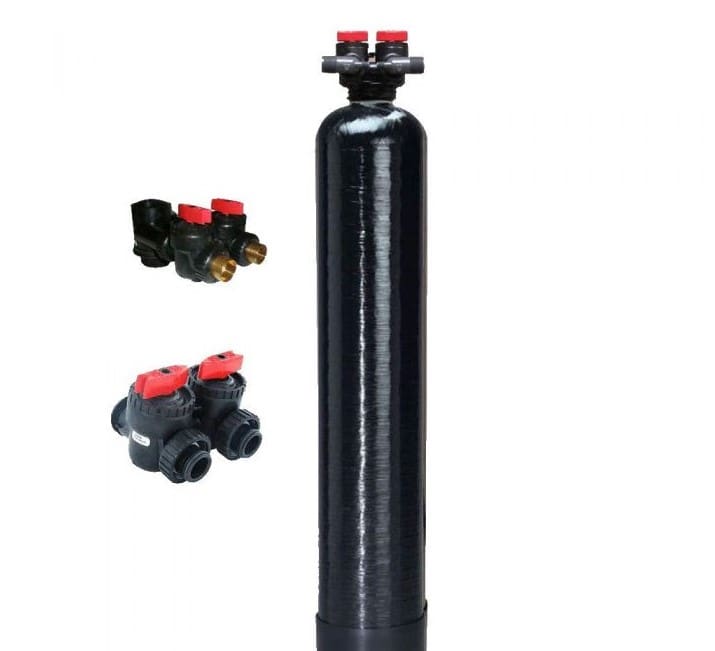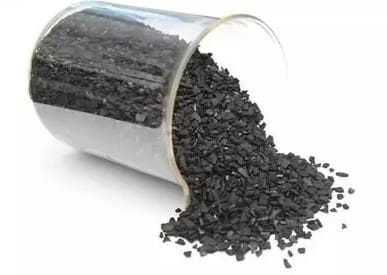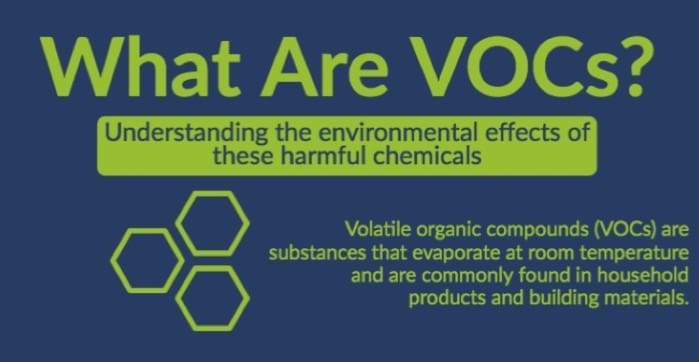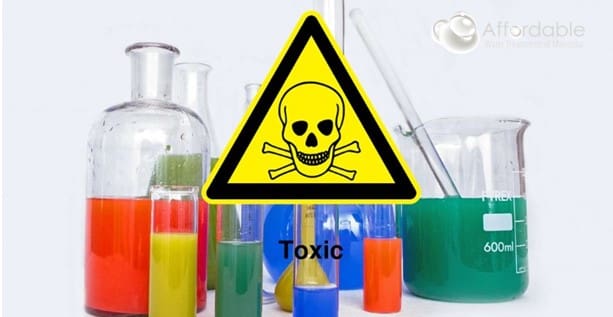
Water treatment is important. Small impurities can make the water undrinkable, cause disease, and cause many household and health problems. Carbon water filtration is an effective and useful option; Learning a little more about it can help you determine if it works for you.
What is Carbon Filter Water Treatment?
Carbon filter water purification is a water purification method that uses activated carbon filters. Activated carbon, also known as activated charcoal, is a highly porous material with a large surface area. Therefore, it effectively absorbs and removes impurities and pollutants from the water.

How does a Carbon Filter Work?
The carbon water filter, also called activated carbon filter, is a type of filter that is widely used to improve the taste and quality of water. It works through a process called adsorption, where impurities in the water attach to the surface of the carbon particles.This is how the carbon water filter normally works:
Physical filtration:
The water first goes through a pre-filter or sediment filter to remove larger particles such as sand, sediment and contaminants. This step will help protect the carbon filter from clogging and extend its life.
Activated Carbon Adsorption:
The water then flows through a layer of activated carbon, a very porous material with a large surface area. Carbon can be made from various sources such as coconut shells, wood, or charcoal. It is usually activated by treatment with steam or chemicals to create a network of tiny pores.
Absorption of Impurities:
As water flows through the activated carbon, organic compounds, chemicals and some impurities in the water are attracted to the surface of the carbon and become trapped in the pores. These include chlorine, volatile organic compounds (VOCs), pesticides, herbicides and some heavy metals. Charcoal effectively removes these contaminants from the water.
Chemical Reactions:
In addition to absorption, carbon filters can also enable certain chemical reactions that further improve water quality. For example, activated charcoal can help lower chlorine and chloramine levels by reacting with these sanitizers.
Final filtration:
After the water has passed through the activated carbon, it undergoes a final filtration stage to remove any remaining carbon particles or loose impurities. This keeps the filtered water clear, clean and free from unwanted substances

What does a Carbon Filter Remove from Water?
Carbon filters effectively remove various impurities from water. Some of the most common contaminants that carbon filters can remove include:
Chlorine and Chloramine:
Carbon filters can effectively remove chlorine and chloramines commonly added to municipal water supplies for disinfection purposes. These chemicals can affect the taste and odor of water.
Volatile Organic Compounds (VOC):
Carbon filters can remove certain organic compounds such as pesticides, herbicides, solvents, and industrial chemicals that may be present in water.
Trihalomethane (THM):
THM is a disinfection by-product formed when chlorine reacts with organic matter in water. Carbon filters help reduce THM levels in drinking water.
Sediment and Particulate Matter:
A carbon filter with a sediment pre-filter removes sediment and particles such as sand, mud, rust, and scale, resulting in clearer, cleaner water.
Some heavy metals:
Carbon filters can remove certain heavy metals such as lead, mercury and copper. However, their effectiveness varies, and it’s important to make sure the filter you choose is specifically designed to remove heavy metals.

What is not Removed in Water by a Carbon Filter?
Carbon filters are effective at removing many contaminants from water, but they cannot remove all types of contaminants. Substances that may not be effectively removed by carbon filters include:
Inorganic Minerals:
Carbon filters do not remove minerals such as calcium, magnesium and fluoride, and heavy metals such as lead, arsenic and mercury. Special filters or water treatment methods are required to remove these contaminants.
Carbon filters can remove some bacteria and parasites, but they are not designed to remove all types of microbes. Additional disinfection methods such as UV treatment or reverse osmosis (RO) may be required to ensure removal of harmful bacteria, viruses and protozoa.
Nitrates and nitrites:
Carbon filters are generally ineffective at removing nitrates and nitrites from water. These substances can be particularly harmful to infants, so specialized treatments such as ion exchange or reverse osmosis are usually recommended.
Hardness:
Carbon filters do not significantly reduce water hardness caused by the presence of dissolved minerals such as calcium and magnesium. Water softeners that use ion exchange or other methods are great at solving hardness problems.
Carbon filters are effective at removing many organic chemicals, including some pesticides, solvents, and industrial chemicals. However, additional treatment methods may be required to completely remove certain synthetic compounds such as perchlorates, chloramines and volatile organic compounds (VOCs).
What Factors Determine the Effectiveness of a Carbon Filter?
Several factors influence the efficiency of the carbon filter. Here are the key factors that determine its effectiveness:
Carbon Grade:
The quality and type of carbon used in the filter greatly affects its effectiveness. Activated carbon is widely used in water filters due to its high adsorption capacity. Carbon must have a high surface area and a porous structure to effectively trap contaminants.
Carbon Bed Depth:
The depth or thickness of the carbon bed in the filter plays a role in its effectiveness. A deeper carbon bed allows for better contact time between water and carbon, thus increasing the likelihood of pollutant adsorption.
Contact Time:
The contact time between water and carbon is critical to effective filtration. The longer contact time allows more contaminants to come into contact with the carbon, increasing removal efficiency. Slower flow rates through the filter can reduce contact time.
Flow Rate:
The speed at which water flows through the carbon filter affects its efficiency. If the flow rate is too high, the contact time may not be sufficient to completely remove the contaminants. Slower currents may be more efficient but may result in lower water pressure.
Pre-filtration:
The presence of sediment, large particles or other contaminants in the water can affect the performance of the carbon filter. Using a pre-filter or sediment filter before the carbon filter will remove larger particles, prevent clogging and improve overall filtration efficiency.
pH:
Carbon filters are usually effective within a certain pH range. Extreme pH levels can affect their performance. In order for your carbon filter to perform optimally, it is important to check the manufacturer’s recommendations for the appropriate pH range.
Type of contamination:
Carbon filters are particularly effective at removing organic compounds, chlorine, pesticides, some heavy metals and some volatile organic compounds (VOCs). However, they may not be as effective against dissolved minerals, salts, nitrates, fluorides, or microorganisms.Different carbon filters can remove certain contaminants differently. Therefore, it is important to choose the right filter based on the contaminants in your water.
Filter Maintenance:
Regular maintenance and replacement of the carbon filter is essential to its long-term effectiveness. Over time, the carbon bed becomes saturated with impurities, reducing its adsorption capacity. Following the manufacturer’s filter replacement recommendations will ensure optimal performance.
Water Temperature:
Water temperature can affect carbon filters. Some filters may be limited to the maximum temperature at which they can operate effectively. Exceeding the recommended temperature range may result in performance degradation.

How Long does a Carbon Filter Last?
The life of your carbon water filter can vary depending on several factors including filter quality, water usage, and the level of contaminants in the filtered water. In general, most carbon water filters have an estimated lifespan of two to six months.
It should be noted that while carbon filters are generally used to remove organic compounds, chlorine and other common contaminants from water, they may not be as effective at removing heavy metals, bacteria or viruses. The efficiency of the filter can decrease over time as it becomes saturated with contaminants. Therefore, regular replacement is required to maintain optimal filter performance.
It is recommended to follow the manufacturer’s guidelines for replacing the charcoal filter, as they may contain specific recommendations depending on the model and conditions of use. Some filters may also have indicators or sensors to help determine when they need to be replaced.
Benefits of Using a Carbon Filter for Water Purification
The use of carbon filters for water purification has several advantages:
Contaminant Removal:
Carbon filters are very effective at removing a variety of contaminants from water. They can remove chlorine, volatile organic compounds (VOCs), pesticides, herbicides, industrial solvents and some heavy metals. This helps improve the taste, smell and overall quality of the water.
Chemical-Free Purification:
Unlike other water purification methods, carbon filters do not require the use of chemicals. They work through an adsorption process that traps impurities in the porous structure of the carbon. This makes carbon filters a natural and environmentally friendly way to purify water.
Retention of Beneficial Minerals:
Carbon filters selectively remove harmful substances while allowing the passage of beneficial minerals such as calcium and magnesium.This ensures the purified water retains important minerals that contribute to its flavor and potential health benefits.
Economic Solution:
Carbon filters are relatively inexpensive compared to other water treatment technologies such as reverse osmosis systems. They are available as faucet mounted filters, carafe filters or larger whole home filtration systems, making them an affordable choice for homes of all sizes.
Easy Installation and Maintenance:
Carbon filters are generally easy to install and maintain. Most filter systems come with clear installation instructions and replacing the carbon filter cartridges is a simple process.Regular maintenance usually consists of periodic replacement of the filter element, depending on the manufacturer’s recommendations and water consumption.
Fast Filtration Rate:
Carbon filters provide a fast filtration rate, allowing for a continuous supply of purified water. They can effectively remove impurities as the water flows through the filter, making them suitable for everyday use and high-demand situations.
Versatility:
Carbon filters can be used on a variety of water sources including tap water, well water and municipal water supplies. Versatile and adaptable to different filtration needs, they offer a cost-effective option for improving water quality in different environments.
Disadvantages of Using a Carbon Filter for Water Purification
Although carbon filters are widely used for water purification and have many advantages, they also have some disadvantages that must be considered:
Limited effectiveness against some contaminants:
Carbon filters are very effective at removing organic compounds, chlorine and some heavy metals from water. However, they are less effective against minerals, salts, nitrates, fluorides and microbiological pollutants. If your water source contains these substances or microorganisms, the carbon filter may not provide adequate purification.
Limited Lifetime:
Activated carbon filters have a limited lifespan and must be replaced regularly to maintain their effectiveness.Over time, activated carbon becomes saturated with pollutants and loses its ability to adsorb pollutants. The frequency of replacement depends on the quality of the filter, water consumption and the level of impurities in the water.
Slow Filtration Rate:
Due to their dense and absorbent nature, carbon filters can slow water flow. If you need a high flow rate, for example for filling large containers or in high-traffic areas, carbon filters may not be the best option as they can result in a significant reduction in water pressure
Dissolved solids cannot be removed:
Carbon filters mainly capture pollutants in the form of gases, chemicals and organic compounds. They are not designed to remove dissolved solids such as minerals and salts. If your water has a high level of dissolved solids, another filtration method, such as reverse osmosis, may be more appropriate.
Potential for bacterial growth:
If the carbon filter is not properly maintained or replaced in a timely manner, it can become a breeding ground for bacteria. A humid environment in the filter can encourage bacterial growth and potentially contaminate the water. To avoid this problem, regular maintenance and timely replacement are essential.
Cost Considerations:
While carbon filters are generally cost-effective, the recurring costs of replacing cartridges can add up over time. The frequency of replacement and the price of replacement cartridges vary depending on the filter system. Therefore, it is important to consider the long-term cost implications.
Environmental Impact:
Disposal of used carbon filter cartridges may generate waste. Activated carbon is not readily biodegradable and can be harmful to the environment if not disposed of properly. Some manufacturers offer recycling programs for used cartridges, but it’s important to check the options available in your area.
It should be noted that the disadvantages listed above must be considered according to the specific requirements of the water source and the contaminants to be removed. Conducting a water qualitay test and seeking advice from Affordable Water Treatments of Manitoba can help you determine the most appropriate filtration method for your needs.
Conclusion
Overall, carbon filters are a popular choice for home water purification due to their affordability, ease of use, and ability to remove a variety of contaminants. Despite their effectiveness, carbon water filters can have limitations. They are primarily intended to improve the taste and odor of your water and reduce common contaminants, but may not be as effective at removing some minerals, salts or heavy metals. In such cases, additional filtering methods may be required.
